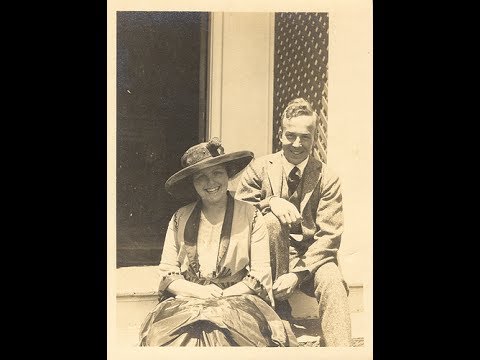I’m one lucky singer to be married to such a gifted song composer as John Musto, so I hope you’ll indulge me as I include one of his songs for this blog. Choosing one Musto song out of so many feels a bit like Sophie’s choice. I love them all.
But…there is one song that I especially love, even if it is one that (sadly) I can never sing, as it really must be sung by a man.
One of the solos from The Book of Uncommon Prayer, Old Photograph is a setting of a poem by Archibald MacLeish, one of John’s favorite poets. Not only does MacLeish’s poem describe a photograph of his wife as capturing the fragrance of Antibes, but his poetry itself is steeped in the essence of that particular paradise known as the Côte d’Azur:
Fresh washed gingham in a summer wind…
John’s setting, infused with music from Debussy’s Pelléas et Mélisande, adds yet another layer to this wistful perfume. (Listen for Mélisande’s lines, “mes longs cheveux” and “Ne me touchez pas” in the piano part.)
I cherish this song beyond measure because it is the music of my beloved, writing in the key of France. And, like MacLeish, I can almost smell the lavender as I recall the year that John and I spent three months in Nice when I was singing Woglinde and the Forest Bird (not Mélisande, alas). It was a great adventure for us early in our marriage, and we fell in love with France. Like Ada MacLeish in the photograph, I was… thirty, maybe. Almost thirty.
Here is John’s description of the song.
Practically all the music of Old Photograph is based on snippets from the Debussy/Maeterlinck opera Pelléas et Mélisande. MacLeish’s wife Ada was an operatic soprano, and her forced laughter and unsmiling eyes seem to be saying to the camera lens, “Ne me touchez pas”, the first words of Melisande to Golaud in the forest. This five note motif runs through the song, as does the main tune on which Melisande sings “Mes longs cheveux descendent jusqu’au seuil de la tour.” Macleish and his wife spent most of the 1920s in France. The couple alluded to in the poem, Gerald and Sara Murphy, were wealthy arts patrons (Gerald being an accomplished painter) who lived for a time as expatriates in a chalet in Cap d’Antibes that they dubbed “Villa America”. They regularly played host to Picasso, Hemingway, John Dos Passos and his wife, the Fitzgeralds and the MacLeishes, and many other creative luminaries of the early twentieth century. The song is a solo from a larger work for SATB and piano, the Book of Uncommon Prayer.
Old Photograph
There she is. At Antibes I’d guess
by the pines, the garden, the sea shine.
She’s laughing. Oh, she always laughed
at cameras. She’d laugh and run
before that devil in the lens could catch her.
He’s caught her this time though: look at her
eyes – her eyes aren’t laughing.
There’s no such thing as a fragrance in a photograph
but this one seems to hold a fragrance –
fresh-washed gingham in a summer wind.
Old? Oh, thirty maybe. Almost thirty.
This would have been the year I went to Persia –
they called it Persia then – Shiraz,
Bushire, the Caspian, Isfahan.
She sent me the news in envelopes lined in blue.
The children were well. The Murphys* were angels: (Gerald and Sara Murphy)
they had given her new potatoes as sweet as peas
on a white plate under the linden tree.
She was singing Melisande with Croiza* – (Claire Croiza, mezzo-soprano, 1882-1946)
“mes longs cheveux.” She was quite, quite well.
I was almost out of my mind with longing for her . . .
There she is that summer in Antibes –
laughing
with frightened eyes.
-Archibald MacLeish



0 Comments